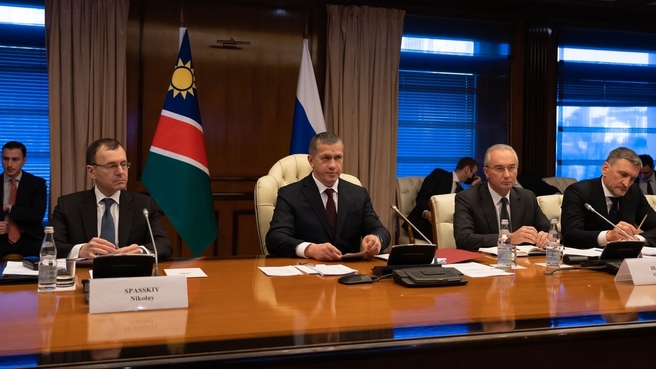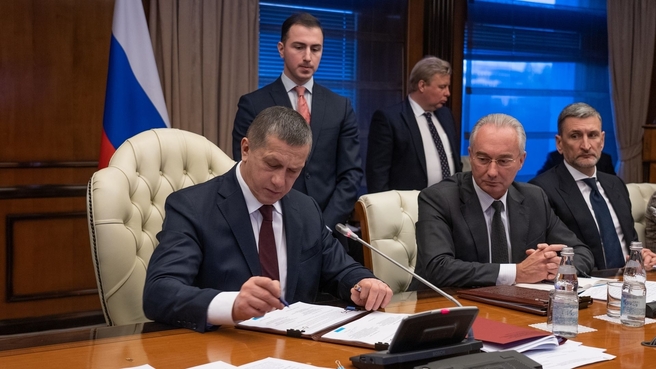On 9 December, the ninth meeting of the Russian-Namibian Intergovernmental Commission on Trade and Economic Cooperation was held in Moscow via videoconference.
On the Russian side, the commission is headed by Deputy Prime Minister of the Russian Federation, Presidential Plenipotentiary Envoy to the Far Eastern Federal District Yury Trutnev. The Namibian co-chairman of the commission is Deputy Prime Minister and Minister of International Relations and Cooperation of the Republic of Namibia Netumbo Nandi-Ndaitwah.
“Friendship
and mutual understanding between Russia and Namibia are rooted in the days of
the Namibian people’s struggle for national liberation and are a reliable
foundation for the relations between our countries,” Yury Trutnev said in his
opening remarks. “I would like to thank you for supporting the Russian
Federation’s application for holding EXPO-2025 in Yekaterinburg, among other
things. We too always strive to support Namibia. We assisted in times of
drought and will continue to help in other difficult times. We are confident that
our friendly relations and partnership will continue into the future.”
“The scale of difficulties related to the pandemic is considerable. However, we continue cooperating as part of our long-standing friendship based on the history and solidarity between our nations. We highly value your support in helping Namibia overcome the difficulties it is facing in this difficult time. I am referring, of course, to the drought and the coronavirus pandemic. The intergovernmental commission remains the main platform for promoting bilateral trade and economic cooperation,” said Netumbo Nandi-Ndaitwah.
The Russian Deputy Prime Minister said that despite the pandemic, Russia-Namibia trade more than doubled in 2020 compared to 2019 and reached $29.5 million.
“At the same time, we realise that this is a modest figure that does not match our cooperation potential. There was a decline in trade in the first nine months of 2021 due to a reduction in grain exports from Russia and a drop in rough diamond imports from Namibia. These foreign economic statistics compel us to look for new ways to promote trade,” Yury Trutnev emphasised.
The tourist flow to Namibia has dropped because of the pandemic. “Russians are interested in seeing Namibia’s amazing nature, and for this reason we are ready to instruct, given your support, our relevant agencies to devise measures to intensify tourism exchanges,” said Trutnev.
The officials noted the cooperation on upgrading the contractual framework. Russia and Namibia have signed a number of important agreements in the past few years. Following the eighth session of the commission, they signed a treaty on extraditing convicted prisoners and an intergovernmental agreement on visa-free travel for Russian Federation and Namibian nationals. Namibian officials are now considering two major agreements: on cooperation and mutual administrative assistance in customs affairs and joint efforts in civilian uses of nuclear energy.
The officials reviewed issues of cooperation in education. Every year, Namibian citizens are granted the opportunity to study at Russian universities under Russian grants from the federal budget within the quotas established by the Russian Government. They can also pay for their education under the relevant agreements.
“Namibia highly values Russia’s continued support of Namibian students at various Russian universities,” said Netumbo Nandi-Ndaitwah.
Russian experts have created favourable conditions for the study of the Russian language by Namibian students via modern telecommunication technology. Those interested can study Russian for free, and receive instructions in Russian in subjects of general and additional education by accessing the Education in Russian website created by the Pushkin State Institute of the Russian Language.
Russian and Namibian representatives signed a roadmap for developing trade and economic cooperation between the Russian Federation and the Republic of Namibia in 2022-2025. The document covers a broad range of areas of bilateral cooperation and represents a plan and schedule for advanced projects and events related to the promotion of bilateral cooperation in the mid-term perspective.












